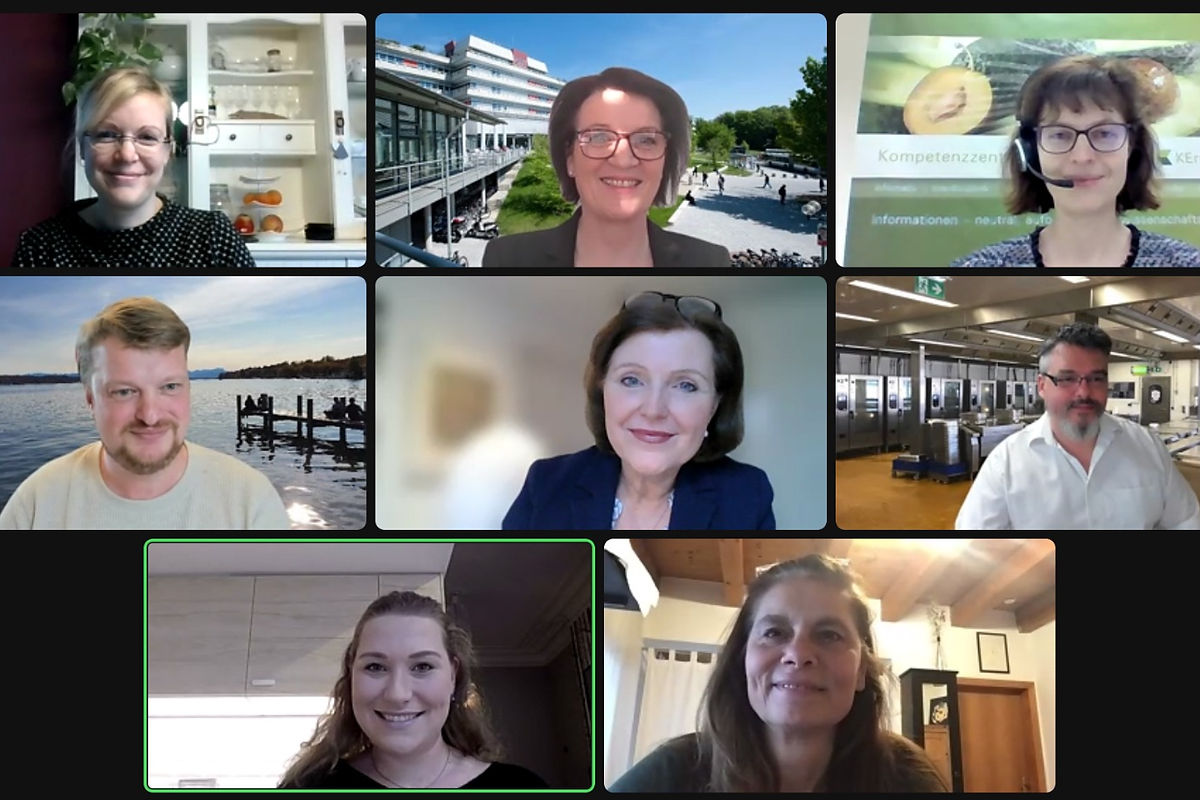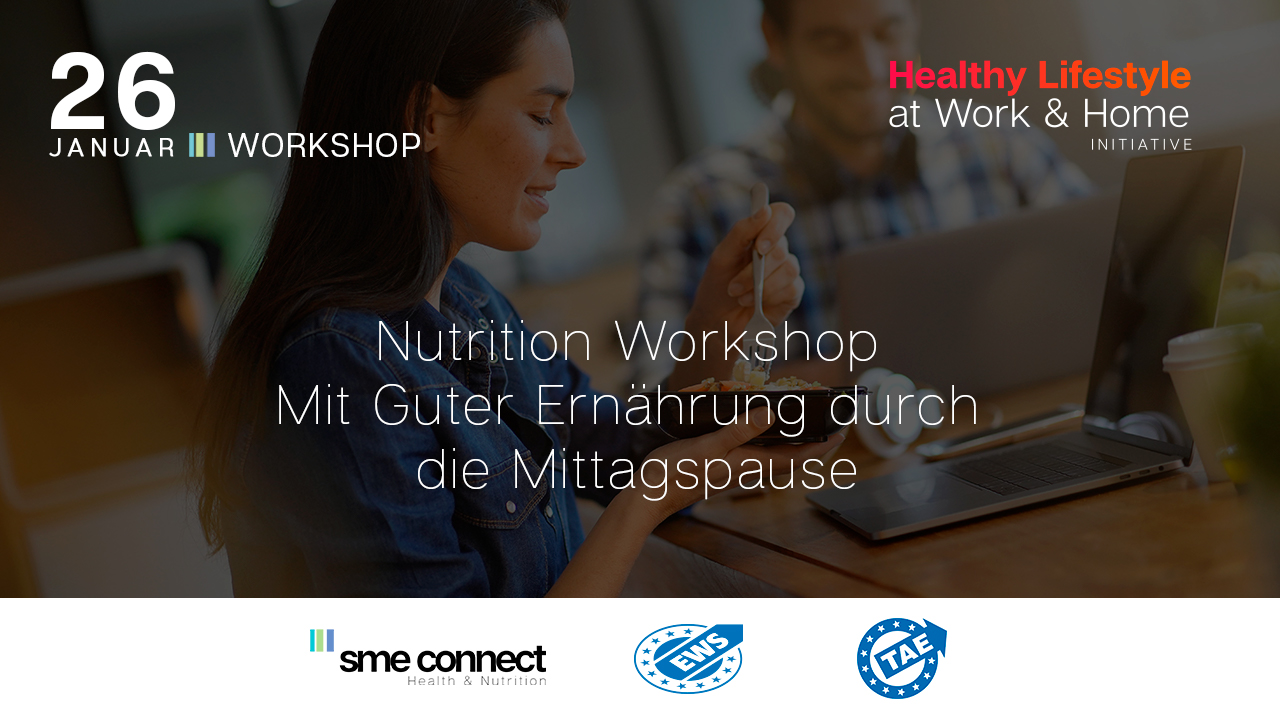
Nutrition Workshop: With Good Nourishment Through the Lunch Break
On Wednesday 26 January 2022, the SME Connect initiative “Healthy Lifestyle at Work & Home” held a nutrition workshop entitled “With Good Nutrition through the Lunch Break”. The focus was on occupational health promotion, to inform employers and employees about healthy eating at work. Tips and tricks were explained on how employers can contribute to maintaining and promoting health, motivation and thus also the performance of their employees.
Among the speakers were SARAH WIENER MEP, Committee on Agriculture and Rural Development and Committee on the Environment, Public Health and Food Safety; DIPL. OEC. TROPH. (FH) SUSANNE LEITZEN, JOB & FIT project team of the German Nutrition Society; PETER FISCHHABER, Chairman Managing Director of the Bavarian catering specialist OFW GmbH; PROF. DR. ANNEGRET FLOTHOW; health psychologist specialising in occupational health management at the Department of Oecotrophology at HAW Hamburg; DR. CHRISTIANE BRUNNER, Head of Nutrition Information and Knowledge Transfer at the Competence Centre for Nutrition – Kern; and PROF. DR. MARION FLECHTNER-MORS, nutritionist at the University Hospital Ulm.

In her opening speech, SARAH WIENER MEP emphasised that high-quality nutrition does not start in the supermarket. Good, sustainable nutrition already starts with fertile, healthy soil. It is about implementing sustainable food systems and creating framework conditions that can promote them in order to create a healthier food environment, also during work. Therefore, the food offer in companies during the break at work is enormously important to protect and promote the resilience and health of employees. As an entrepreneur and a cook, she also gave some tips on how small changes could already have big impacts.
SUSANNE LEITZEN emphasised the role that food can play in company health management. She explained the DGE quality standard and concrete steps and examples of how healthy sustainable nutrition can be implemented in companies with and without canteens.
Evidence-based study results were contributed by PROF. DR. ANNEGRET FLOTHOW. In order to design nutrition in a way that promotes health and ultimately also contributes to the prevention of overweight and obesity, it is important to not only focus on the canteen, but also on the entire nutritional infrastructure. Furthermore, examples were presented of preventive measures within the framework of occupational health promotion, which are financially supported.
PETER FISCHHABER presented the entrepreneurial perspective. He emphasised that the reality for normal medium-sized companies with smaller company canteens is different. The time constraint is a major factor. But also due to the wave of digitalisation, neither food nor the lunch break no longer represent a rest for the employees. In addition, in many companies only the price plays a role. Unfortunately, production technology, regionality, organic food, etc. take a back seat. The corona wave also has its share in this. A healthy diet helps to get out of this slump, but the incentives need to be better designed. Even from the government side, there is no role model function, as it is mainly about saving costs.
DR. CHRISTIANE BRUNNER emphasised that the lunch break is also a very important aspect from a psychological point of view. It is not only a time to eat to promote performance. It also serves as an exchange platform and meeting place. Company catering can play a pioneering role in promoting healthy and sustainable nutrition. She went on saying that the implementation of a health-promoting diet can also be inexpensive or even free of charge and gave the example of nudging, among others.
In the closing speech, PROF. DR. MARION FLECHTNER-MORS focused on why a good diet is so important. She pointed out that the majority of the German population is no longer of normal weight. Due to sick days, illness and overweight also cost the employer money. She presented a connection between the higher mortality risk of overweight and obese people and the coronavirus and gave a further outlook on how a calorie-controlled diet with many micronutrients is possible.
